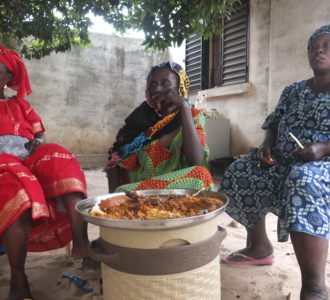I have attended a good amount of awkward dinners. The times are plentiful where I have unintentionally crashed a dinner and nobody has had the courage to tell me to leave. Leaving me to awkwardly sit at the dinner table feeling like an imposter and picking up on the subtle hint that tells me that the dinner was intended for someone other than myself. The shuttle hints that also tell me that as a dinner crasher I am imposing on the very essence of private life, the meal times. The time designated to take care of basic need but also to take a break from a busy workweek and sit down for some quality bonding exclusively for immediate family members. By all means, the times where I have felt welcomed to attend a dinner are in the majority. But in the times where I have felt welcome have more often than not been times where I was invited ahead of the dinner. Where a family had decided beforehand to open up their homes and share an otherwise private experience. Moving away for the private and putting on the mask of being a host. They do not longer care about inter-family bonding but become more cautions of being attentive to the guest. Preparing tastier food than usual and making sure to ask the guest the right amount of questions about his or her life. All in order to symbolize their hospitality.
Much of these unwritten social norms to being a good host also exist in Senegal. When visitors come for dinner during a planned visit, my host family follows the same steps as other families. The public mask comes on and my family treats the guest with special attention. Making sure to prepare an extra tasty meal, and giving the guest soda or watermelon for dessert. All in order to symbolize their hospitality.
However simply explaining these social norms does not do justice to how I have experienced Senegalese people taking me into their homes. My experience has been more about the unconditional acceptance I have felt from strangers. Experiences that I have gain through what has become one of my favorite activities. Taking a walk or a bike ride until a stranger invites me in for lunch. I call it the ‘ceeb surf’ (rice surf). An otherwise socially dubious form of freeloading has led me to experience a form of hospitality, which I do not think I could have found in my Norwegian hometown.
Between two and three o’clock I do not have to walk far down my street before some stranger waves at me to catch my attention. Following a quick greeting the stranger always says, “Come eat lunch”. It never fails. During my dozens of ceeb surfs have never I returned home empty bellied after a walk in the town or a bike ride into an unknown village. What has struck me — has been the humble hospitality I have felt. Invited in for lunch I never feel like a guest. Rarely am I given any special attention and the host usually cares little about who I am or where I am from. The host seems to have a simple reason for inviting me in for lunch. A personal obligation to take care of the public. Where the lines of private life becomes blurred and the taking care of a strangers need for food becomes equally important to taking care of the needs of immediate family members. Where the host does not feel that I am imposing on his or her private life or taking advantage of their hospitality and exploiting their food recourses. Rather an unquestioned recognition and acceptance of my basic needs. Recognition given through a simple lunch, where the host does not leave me obliged to repay. Leaving me only with the lesson to not question a stranger about their motives or background, but simply opening up ones home to show willingness to care for people outside your own culture or immediate family and friends.
A bowl of ceebu jen and its makers.


